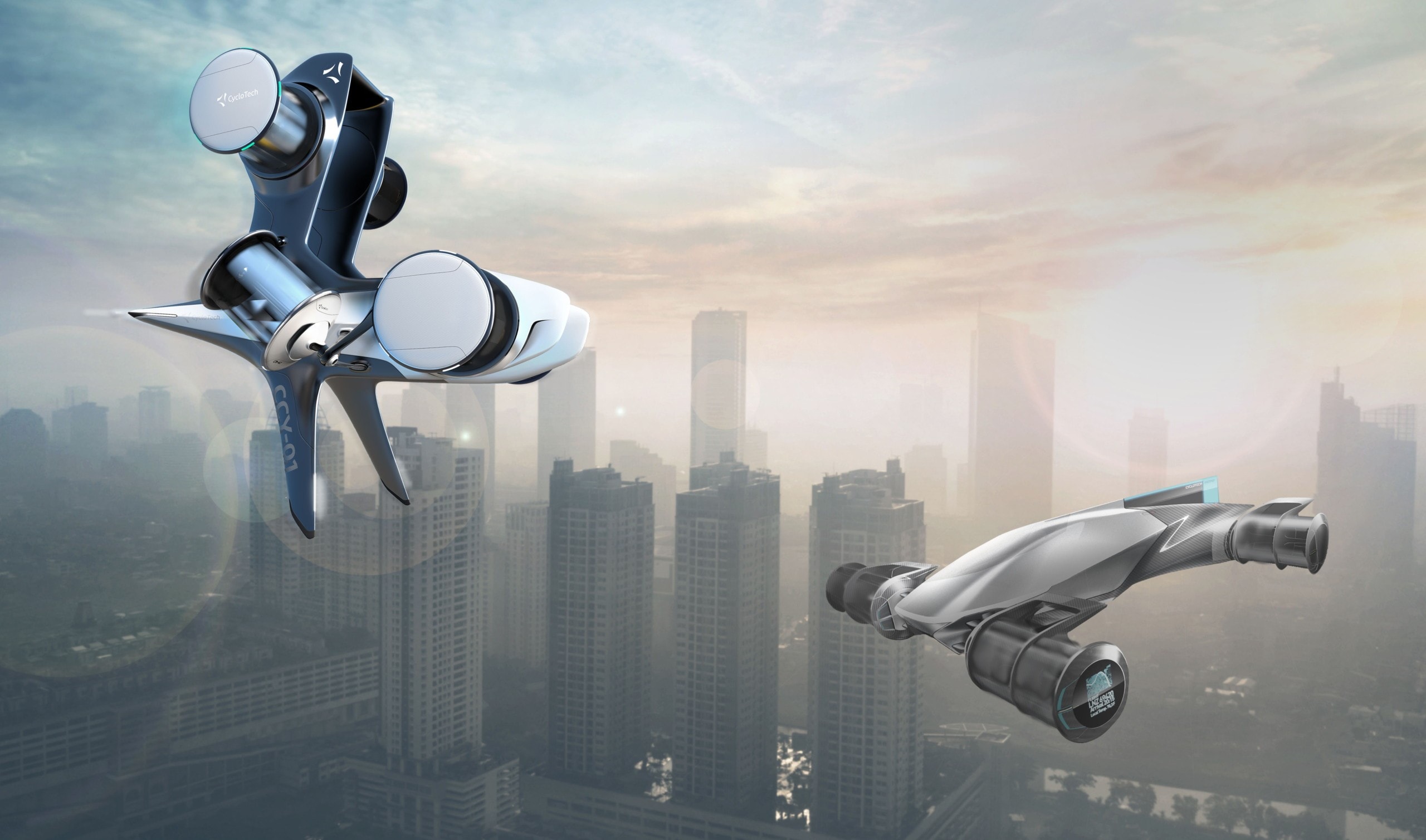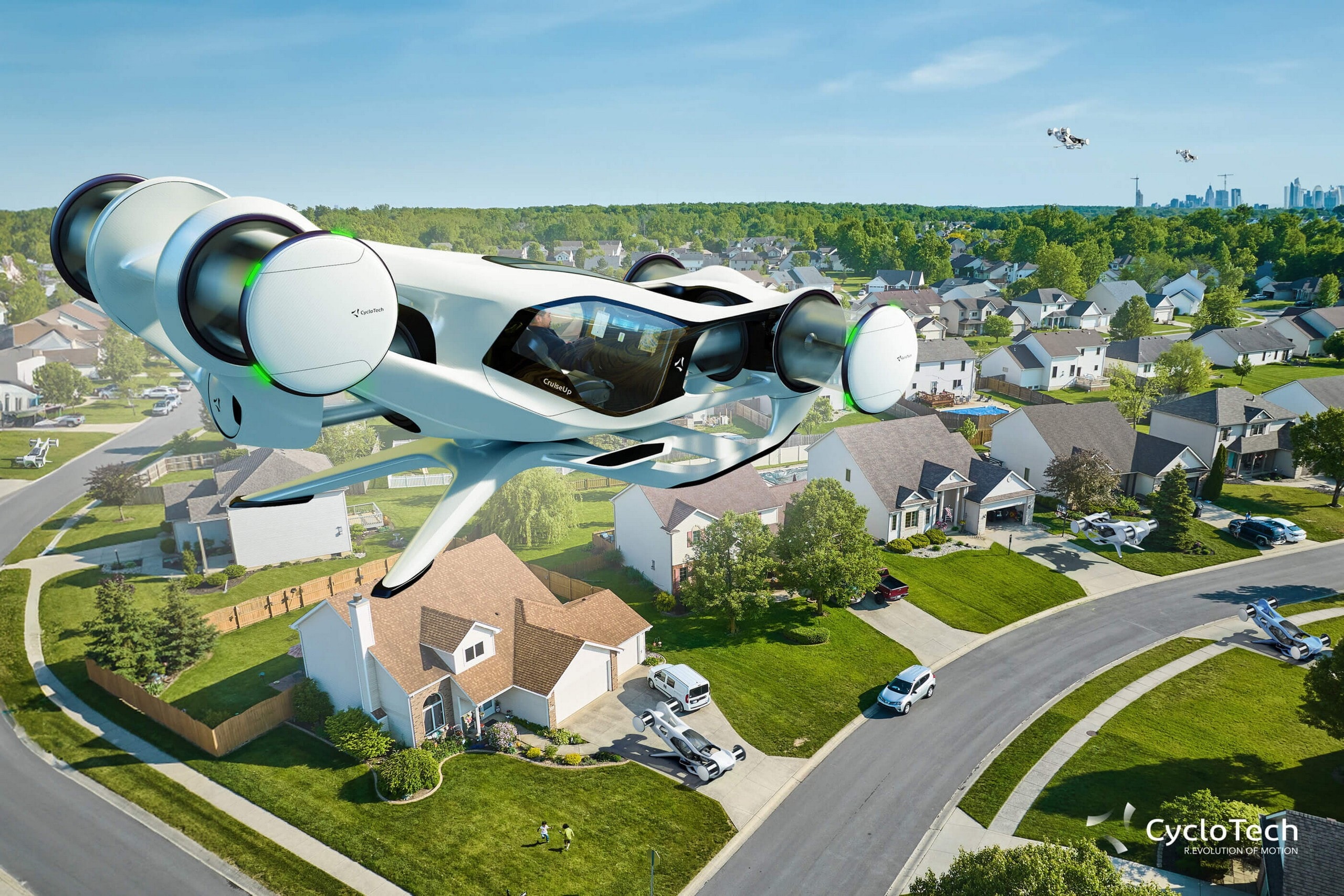The CruiseUp air car flaunts one of the most futuristic designs in the eVTOL (electric vertical takeoff and landing) domain, but its significance extends beyond aesthetics. Concealed within its captivating exterior lies the promise of a revolutionary propulsion system that transcends traditional air taxi applications.
CycloTech, an Austria-based aviation technology company, is diligently working behind the scenes to transform its propulsion innovation into a commercially viable solution.
Financially, the objective is to secure €53 million ($57.4 million) in funding by year-end. The initial step has proven successful, with CycloTech already amassing over $20 million in funding within a few weeks.

The development of the first working prototype of its signature invention, the CycloRotor, will be accelerated by this financial injection.
After eight years of painstaking creation and testing, the sixth-generation version is currently undergoing rigorous flight testing. Five prototypes have helped to improve CycloRotor technology.
The ultimate goal is to obtain full certification from the European Union Aviation Safety Agency (EASA). However, a significant journey lies ahead, with the most optimistic projections anticipating a market-ready product by the end of this decade.
The anticipation is warranted, as this propulsion technology transcends the conventional focus of most eVTOL systems on urban mobility. Its versatility spans various industries, from utilizing flying cranes in construction to deploying high-precision military drones.
In the realm of air taxis, this technology holds the potential to revolutionize transportation, enabling the creation of compact, comfortable flying cars with enhanced maneuverability compared to existing eVTOLs.
In essence, the CycloRotor represents a paradigm shift in propulsion, offering 360-degree thrust vectoring capability that enables precise control in all directions, setting the stage for the next generation of aerial mobility.

